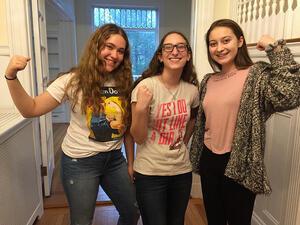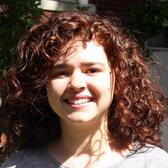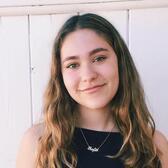Women's Rights are Human Rights
JWA's Rising Voices Fellowship helps female-identified teens develop authentic voices, strengthen their leadership through writing, and begin to influence the important conversations of the Jewish community. Of course, these rock stars are already shaking things up in their communities today. This is part of Rising Voices in Action, a month-long annual series that demonstrates the many different ways in which you can challenge the status quo, no matter your gender or age.
Feminism is a big part of the Rising Voices Fellowship, and our Fellows involve themselves in feminist work in a variety of different ways. From attending conferences about issues facing women today, to addressing sexual assault in schools and beyond, these young women are standing up for themselves, and for women in their communities.
As I write, I’m spending a week in New York City with three other co-presidents of my school’s feminist club, at the 62nd Commission on the Status of Women at the United Nations. This conference includes hundreds of panel discussions, town hall meetings, and other events throughout the week that engage people of all backgrounds in discussions about issues facing women and girls around the globe. Yesterday I had the opportunity to sit in on an NGO event with women who work with We Power, an Israeli organization that mentors women and encourages them to pursue careers in politics. I was the youngest person in the room by at least twenty years, yet I didn't feel out of place. Everyone in that room was passionate about the same issue, whether they came from Botswana, Los Angeles, or Tel Aviv. I asked what work they were doing to empower young women like me, and when I stood up and voiced my opinions, they respected me. They didn’t take me any less seriously simply because I’m only 17. I’m excited and energized by what I’ve learned, and look forward to using it to continue my own development as a feminist, and to continue to influence important conversations in my own community, and beyond.
I jump into my mom’s car and toss my backpack onto the seat beside me. NPR is on. My mom is obsessed with NPR! Secretly, I get her radio crush, but my fourteen-year-old self would never admit to that. I reach for the dial to flip the station, like I normally do, when I hear: “It's sometimes called ‘the red zone,’ when female students are thought to be at higher risk of sexual assault.” I go on to learn that one in five girls and one in sixteen boys are sexually assaulted at college. And, the statistics are about the same in K-12 schools, which serve as a breeding ground, and feed the collegiate problem. Shortly after hearing this NPR show, I created a community action program called EMPOWERU to address issues important to teens, primarily sexual assault. I began to organize pledge drives to get students to take a pledge against sexual assault, and screenings of the documentary It Happened Here to all the high school students in my county. After the screenings, I interviewed students, and talked to teachers at the schools. Over 2,000 local students participated in these events, leaving with knowledge that can keep them safe. When I went to change the radio four years ago, I had no idea that I was actually changing the trajectory of my life. NPR planted a seed that I could have ignored and let die, but I chose to nurture it, and I continue to nurture it, even when the work is hard.
Last year, I went to my grandparents’ house after school. As I walked into their office to do my homework, my grandpa turned off The O’Reilly Factor so that I could concentrate. Yes, the TV is distracting while doing homework, and yes, I disagree with O’Reilly’s politics. But, my grandpa knew that, in light of the New York Times article that had just come out reminding everyone about the five sexual harassment allegations against him over the past ten years, Bill O’Reilly’s voice would throw me into a rant that would render me useless for the rest of the day. Five days later, Bill O’Reilly was fired from Fox. While the general public wouldn’t find out about Harvey Weinstein until months later (when the floodgates truly opened), the Bill O’Reilly scandal prompted me to ask questions: Why do people with money and power feel emboldened to sexually harass the less powerful? Why should I have to feel afraid to enter the workplace, or walk to my car in a parking garage, or take a jog at night? I attempted to challenge the very need for these questions through debate with my grandpa, my peers, my teachers. I saw the power of the press through that first New York Times article about Bill O’Reilly, and the subsequent ones that chronicled similar offenses, so I wrote articles myself. I realized the weight a single voice can carry, so I use mine, and I don’t plan on stopping anytime soon.
Inspired by these reflections? You can check out RVF’s other blog posts. If you love the series and want to hear more about what these budding revolutionaries are doing, sign up for our blog mailing list.
This piece was written as part of JWA’s Rising Voices Fellowship.










